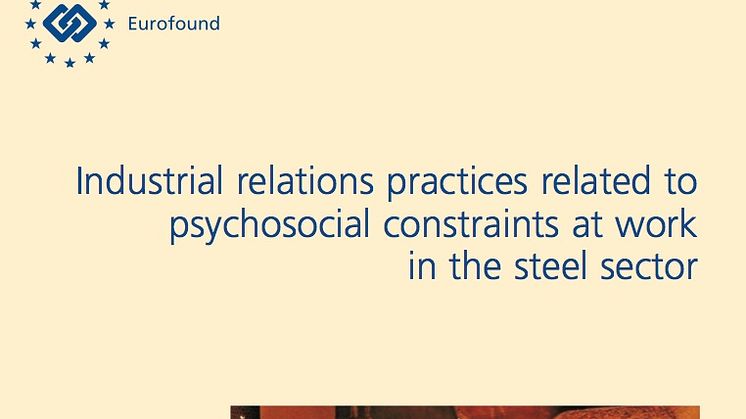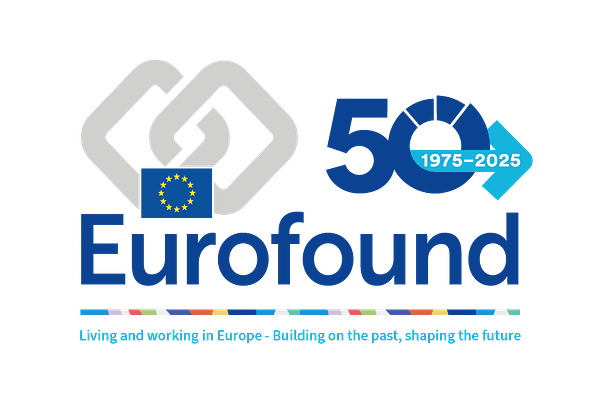
Press release -
Positive effects of steel workers’ direct participation in managing health, safety and psychosocial risks at the workplace
(Dublin, Ireland): Direct involvement of all workers within an organisation with a view to achieving a culture of openness regarding psychosocial constraints at the workplace is one of the main challenges for the steel sector, according to Eurofound’s latest report on ‘Industrial relations practices related to psychosocial constraints at work in the steel sector’. Encouraging people to talk about their problems at work, especially psychosocial problems, is a key element in tackling the issue of the effectiveness of prevention strategies.
The report looks at industrial relations practices regarding health and safety strategies in the European steel sector by analysing company practices in three case studies: ArcelorMittal in France, Rautaruukki in Finland and Salzgitter AG in Germany. The report compares the main findings on the role of social dialogue and company practices regarding prevention. It also highlights some specific company and sectoral features triggering psychosocial risks and their prevention.
Although the three companies studied operate in different contexts (global, European, national, local), they are all confronted with psychosocial constraints at work. Issues such as stress, mental health and well-being are perceived as being not only detrimental to the health of workers, but as also having an economic impact on employers and civil society.
The negative impacts of psychosocial problems arising at the workplace occur on economic performance (productivity) and human capital. For this reason, the three companies initiated a psychosocial risk assessment and subsequently compiled prevention measures. These took place in a wide variety of contexts, for example on the initiative of management, in the light of demographic change or following restructuring, but were part of the companies’ general policy and were supported by management.
The report shows that the three companies have developed specific actions to deal with, reduce or prevent the incidence and negative impact of psychosocial constraints on both workers and the company. Real investments are therefore being made to implement awareness-raising programmes, train managers and prevent detrimental outcomes.
The companies involve all workers, especially management, in addressing the issue. Triggering a collective behavioural change and involving all stakeholders within the organisation is therefore considered to constitute the key element and main on-going challenge. Existing formal and informal social dialogue channels represent an asset as they offer a place for an increased exchange of views between workers and employers.
Related links
Topics
Categories
The European Foundation for the Improvement of Living and Working conditions (Eurofound) is a tripartite European Union Agency, whose role is to provide knowledge in the area of social and work-related policies. Eurofound was established in 1975 by Council Regulation (EEC) No. 1365/75.
For more information about Eurofound and its work, and free access to all our data and findings, visit our website and follow us on these social media channels: Twitter, Facebook, Google+, YouTube, or Flickr.

